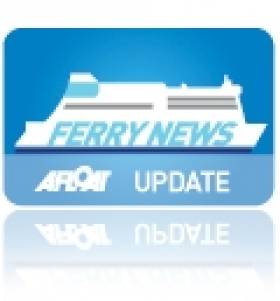Displaying items by tag: SSI
Passenger Ship Obligations to Assist in Search & Rescue
The Department of Transport's latest marine notice pertains to the requirements for passenger vessels in assisting with search and rescue services.
All passenger ships on international routes - such as ferries and cruise liners - are obliged to have a plan for co-operation with search and rescue operations should their assistance be needed.
The notice outlines that any plan should be developed between the ship itself, the ship company and the Irish Coast Guard. Plans must also be drilled periodically to test their effectiveness.
Ship owners and masters are also obliged to give an indication of the existence of their co-operative rescue plans by way of SeaSafeIreland (SSI) notification. Should that not be possible, the Marine Survey Office of the Department of Transport must be notified directly.
A PDF of Marine Notice No 18 of 2011 is available to read and download HERE.
























































